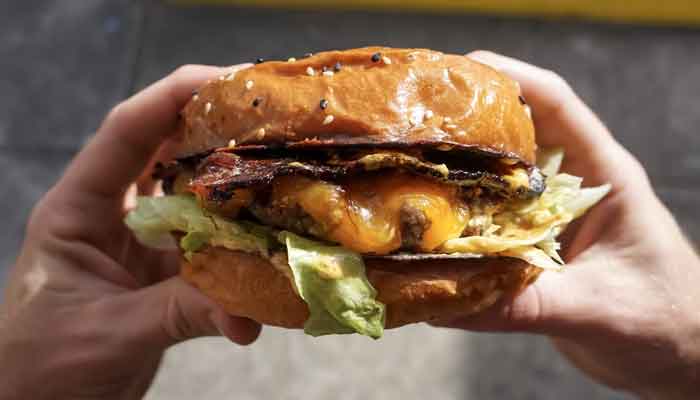Everyone deals with gas and bloating now and then, but for new vegans, it can occasionally feel like a full-blown gut rebellion. Fortunately, it’s not a sign that your body can’t handle a plant-based diet, it’s likely a sign that your gut is learning to thrive.In an episode of The Exam Room, the YouTube channel from the Physicians Committee, gastroenterologist Dr Will Bulsiewicz – also known as The Gut Health MD – explores one of the most awkward but common issues new vegans face: gas and bloating.
Bulsiewicz is the author of Fiber Fueled and an American board-certified specialist. His work centers around the powerful connection between diet and gut health, and in this episode, he breaks down why bloating happens and how to beat it.Gut health tips for vegansThe video, titled Gas and Plant-Based Diets: Tips from The Gut Health MD, covers practical strategies to support the microbiome and ease digestion when transitioning to a plant-based diet.

From bean bloating to probiotic myths, Bulsiewicz answers a series of questions from viewers with science-backed advice.Here’s a breakdown of the most common concerns and what Dr. B recommends.
Please note: this is intended as a guide only. If you’re worried about gas, bloating, or anything related to your gut health, you should always speak to a doctor or health professional.Ease in slowly with fiberJumping headfirst into a fiber-rich diet can cause gas, bloating, and discomfort.
Bulsiewicz explains that the gut microbiome needs time to adjust.“You are changing your diet, your gut microbiome is adapted to the food that you were eating,” he says. “It’s going to take time for your gut microbes to adapt.
”He recommends starting with cooked foods, which are easy to digest, before progressing to raw foods. He also advises to take a probiotic and increase fiber gradually, making sure the bowels stay regular. Constipation, he says, is the number one cause of gas and bloating in his clinic.
Gas from beans? Don’t panicBeans, lentils, and hummus are rich in fiber and FODMAPs, which are carbohydrates that can cause excess gas. The trick is to introduce them slowly and give the body time to adapt.“Good news: the vegan diet is not destroying your gut.
What you are experiencing is sloppy digestion,” Bulsiewicz says. “It is not indicative of you actually causing damage to the gut.”Soaking and rinsing beans, using fresh cooking water, and even adding seaweed can help reduce a gas-causing compound called raffinose.
Read more: ‘What I Eat In A Week As A Strong Vegan’Water is keyBulsiewicz emphasizes that hydration plays a big role in gut health – and plain water beats carbonated beverages every time.“The gas that goes in your mouth has to come out one end or the other,” he jokes. “You’re either going to belch it out or it’s going to pass all the way through the intestines.
”Plain water supports digestion and helps relieve constipation, especially when paired with fiber. The doctor likens it to floating a log downstream: “If the creek bed is dry, that log is going to get stuck in the rocks.”Keep in mind that regular bowel movements are crucial for reducing bloating.
Constipated? Try magnesiumIf drinking more water and walking aren’t enough, Bulsiewicz recommends magnesium supplements before bedtime.“It’s good for the bowels, it’s good for sleep, it’s good for anxiety..
.it’s even good for headaches,” he says, noting that many people find it helps “jump start the bowels.” Only once the bowels are moving regularly does he suggest slowly increasing fiber.
Fermented foods: A helpful additionFermented foods like sauerkraut and kimchi can benefit the microbiome, according to Bulsiewicz.“I haven’t seen a study that says that we need fermented foods,” he says. Still, they can enhance gut health when eaten in moderation and introduce beneficial microbes that survive digestion.
Stress can impact your gutEven if you’re eating perfectly, stress might still cause digestive issues.“If you are not at peace with the stress in your life, it is going to have negative consequences on your gut,” Bulsiewicz says.He explains that stress hormones trigger dysbiosis – an unhealthy imbalance in the gut bacteria – and encourages people to address stress just as seriously as diet or sleep.
Build diversity with plant varietyWant a healthy microbiome? Don’t just eat plants – eat lots of different plants.“The single greatest predictor of a healthy gut microbiome is the diversity of plants within our diet,” Bulsiewicz says. Different plants contain different fibers, and variety ensures that all types of gut microbes are fed.
Struggling with cruciferous veggies? Cook themAdobe Stock Cooking kale can help alleviate bloatingCruciferous vegetables like kale and broccoli can cause discomfort for some, especially when raw. Bulsiewicz suggests cooking or steaming them to make them easier to digest, and pairing them with other greens like spinach to lighten the load.Every gut is differentBulsiewicz reminds us that no two microbiomes are the same.
Even identical twins only share about 34 percent of the same gut microbes.“Each one of us has a unique gut microbiome – it’s as unique as your fingerprint,” he says.That means some people may adapt to plant-based diets quickly, while others need more time and support.
If excessive gas persists, Bulsiewicz suggests seeing a gastroenterologist to rule out underlying issues.The big takeaway?Sloppy digestion doesn’t mean your diet is broken, it just means your gut is learning. Support it with water, plant variety, exercise, patience, and yes, a little magnesium if needed.
As Bulsiewicz puts it, “Once the gut settles in and gets adapted to what you’re doing from a dietary perspective, the gas and bloating is gone.”Catch the full episode on the Physicians Committee’s YouTube channel for more insights and a good laugh or two along the way.You can find more plant-based health videos on the Physicians Committee YouTube channel.
Read more: ‘My Chili Crisp Caesar Pasta Salad Went Viral – Here’s How To Make It’This article was written by Editorial Team on the PBN Website..
Health

A Gut Doctor’s Survival Guide To Bloating On A Plant-Based Diet

Here, The Gut Health MD responds to commonly asked questions about gas and bloating on plant-based dietsThis article was written by Editorial Team on the PBN Website.















